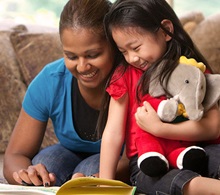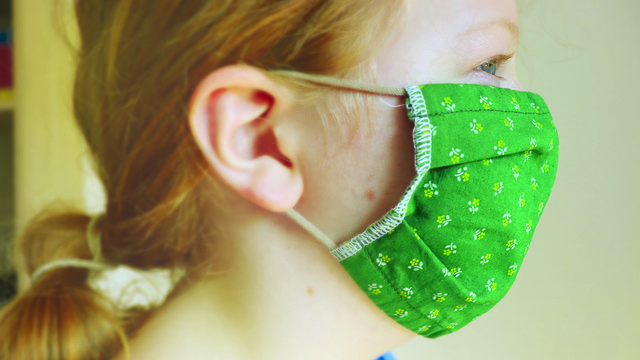 We here at Premier Academy know the importance of school readiness. The first five years are critical to a child’s lifelong development. Early experiences influence brain development, establishing the neural connections that provide the foundation for language, reasoning, problem solving, social skills, behavior, and emotional intelligence – characteristics that often determine how well a child will do in school and in life.
We here at Premier Academy know the importance of school readiness. The first five years are critical to a child’s lifelong development. Early experiences influence brain development, establishing the neural connections that provide the foundation for language, reasoning, problem solving, social skills, behavior, and emotional intelligence – characteristics that often determine how well a child will do in school and in life.
Because early childhood is an important stage of any kid’s life, today’s parents share high expectations for early achievement, including school readiness. 90% of parents surveyed cited academic preparedness as the most important factor in their child’s preschool experience. They want to ensure that their children enter school ready to meet or exceed academic expectations and with a demonstrable ability to apply their newly developing skills in reading, writing and math.
Teacher Perspectives on School Readiness
In a recent study, elementary school teachers shared their views on what they believe to be the most important school readiness factors for any child to succeed in a public or private school setting.
Teachers were unified in their feeling that children should enter their first years of school with an ability to comprehend broader language and math concepts, as well as to be prepared for the social and emotional demands of school. In fact, 96% of teachers surveyed indicated they believe that social and emotional preparedness are the most important outcomes of a child’s preschool experience in order for them to be poised for academic success in the elementary years.
- Teachers agree that key indicators of the children’s social and emotional readiness for kindergarten and first grade are readiness to accept new responsibilities and greater independence; a strong enthusiasm for learning; an ability to make new friends; and the ability to respect others. At Premier Academy, we focus on making sure your child has the emotional and social maturity required to succeed in Kindergarten and beyond.
- 96% believe the child’s pre-K experience played a critical role in the child’s preparedness for school.
Common Myths about What School Readiness Means for Your Child
There’s no reason for most parents to be anxious about school readiness. Children who come from homes where adults read, spend engaged time with their children, value literacy, and/or have some social interactions with other children in child care, playdates or groups, or preschool are usually well prepared for kindergarten.
But there are some common myths of which to be aware.
- Myth #1 – Learning the ABCs is crucial to school readiness.
The Truth: While important, learning the ABCs is a memorization skill. It’s more important that children recognize letters and identify their sounds to prepare for school.
- Myth #2 – Children need to count to 50 before going to grade school.
The Truth: Again while it is important that children understand the order of numbers, when it comes to school readiness, it is far more important to understand the idea of 1-to-1 correspondence (each number counted corresponds to an object, person, etc.) and understanding quantity.
- Myth #3 – The more teacher-directed the learning, the better.
The Truth: Children internalize concepts more fully when they are actively engaged in exploration and learning versus being told by someone else. Teachers should be there to guide learning.
- Myth #4 – The more a program looks like the school we remember as a child the more children will learn.
The Truth: Young child learn best in an environment that allows them to make choices; to select their own materials for at least part of the day; and empowers them to try new things with a teacher who guides the learning.
- Myth #5 – Children need quiet to learn.
The Truth: Children need a language-rich environment where adults provide responsive language interactions and where vocabulary is regularly introduced.
- Myth #6 – Learning to write is all about letter formation.
The Truth: While letter formation is one part, even more important is understanding the idea of recording one’s ideas on paper. When a child makes some scribbles and says “This is my daddy,” write your child’s words on the picture and she will begin to make connections between spoken and written words.
Learning some “school skills” like lining up and raising hands before transitioning to school will certainly help make the transition to formal schooling easier; however, the best way to prepare your kids to enter school is giving them the chance to fully explore and experiment in an environment with caring adults who guide, support, and extend their learning. We can offer you all of that and more at Premier Academy.
Enroll Today! Click Here


 We here at Premier Academy know the importance of school readiness. The first five years are critical to a child’s lifelong development. Early experiences influence brain development, establishing the neural connections that provide the foundation for language, reasoning, problem solving, social skills, behavior, and emotional intelligence – characteristics that often determine how well a child will do in school and in life.
We here at Premier Academy know the importance of school readiness. The first five years are critical to a child’s lifelong development. Early experiences influence brain development, establishing the neural connections that provide the foundation for language, reasoning, problem solving, social skills, behavior, and emotional intelligence – characteristics that often determine how well a child will do in school and in life.